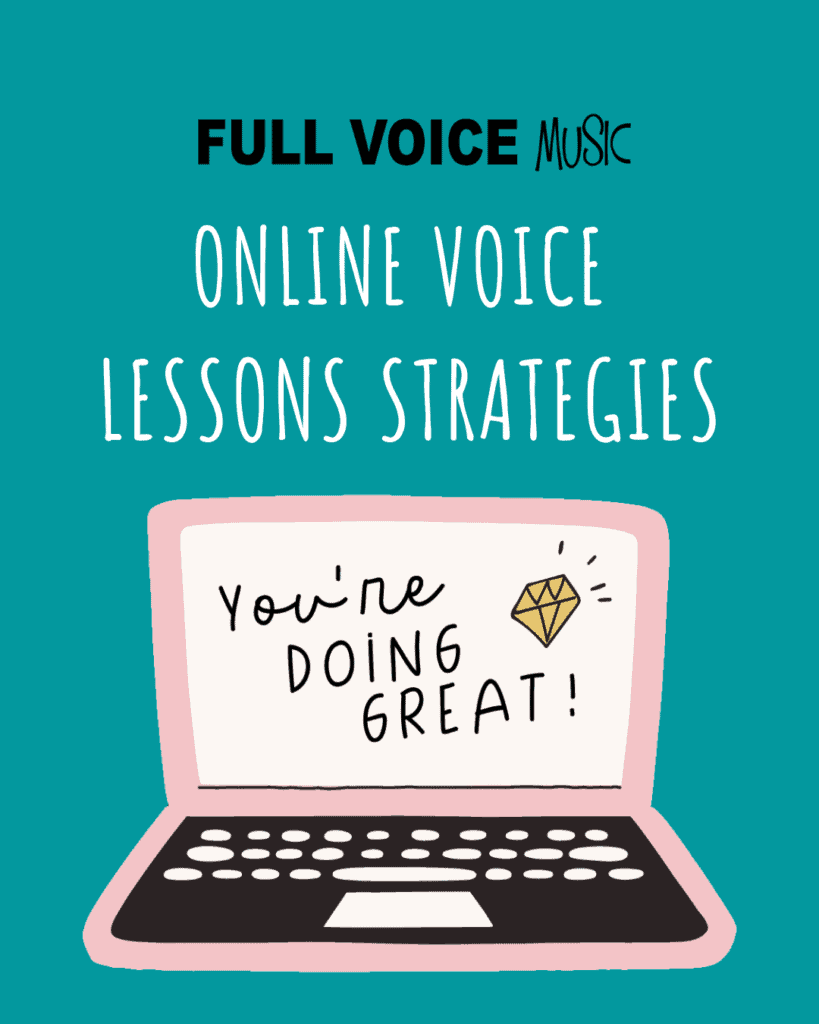FULL VOICE Music
BLOG

Quick Inspiration for Voice Teachers
Spooky Singing Group Lesson Plans
Small group classes are so fun, and if you are teaching online - here are my spooky singing suggestions for an engaging and fun Halloween-themed class.

10 FANTASTIC Online Voice Lesson Strategies
Online lessons have changed how many teachers can serve their students, and now many teachers choose to teach online as part of their studio offerings. Whether you are new or experienced with online instruction - these strategies are fun and effective.

Online Small Group Voice Lesson Plan
Here is the step by step for my online small group singing class. I hope this helps you find some inspiration and courage during your transition to online lessons.

DEATH to the 30-minute Music Lesson
Not long ago, it was standard practice to teach short half-hour lessons. Times have changed. Short lessons might not be serving you or your students.

Assertive Communication for Teachers
Assertive communication isn't about being rude. It is a style of communication that is professional and healthy. It is not a skill we are born with but a form of communication that requires attention and practice.

How to HOST the BEST RECITAL EVER!
This event reflects your business, and making music is supposed to be fun – right? Make everyone feel comfortable and appreciated at your next recital.

How To Compete with After-School Programs (and win!) 5+ Tips
Private music teachers/private music lessons compete with other after school programs and the competition is intense! Sports, Dance, Arts, Clubs...There are so many activities... How do you ensure that families make music lessons a priority in their busy schedules?

Why Singers Need to Move – By Christin Coffee Rondeau
We all know that clean, crisp movements work best on stage. But they can be intimidating to practice, leading to the bent elbows and small, half-hearted gestures we teachers know and loathe. If we were to develop a studio culture of intentional movement and creative exploration, I wonder: would our students begin to see themselves…



